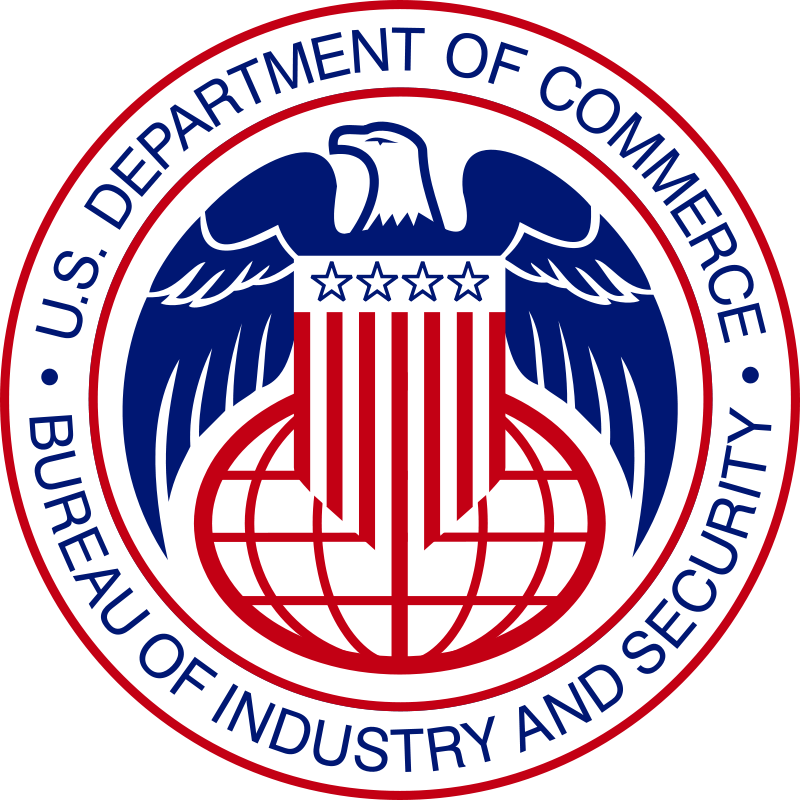Bureau of Industry & Security
Office of Congressional and Public Affairs

FOR IMMEDIATE RELEASE | June 24, 2024 | Media Contact: [email protected]
BIS Settles Alleged Export Control Violations with Indiana University
WASHINGTON, D.C. – Today, as part of a settlement agreement, the Department of Commerce’s Bureau of Industry and Security (BIS) issued an order imposing an administrative penalty on Indiana University (IU) related to exports by IU’s Bloomington Drosophila Stock Center (BDSC).
This settlement resolves the allegations set forth in a Proposed Charging Letter (PCL) regarding 42 violations related to the export of fruit flies genetically modified to produce a subunit of a controlled toxin. These exports went to numerous research institutions and universities worldwide without the required export licenses. IU voluntarily disclosed the conduct to BIS, cooperated with the investigation by BIS’s Office of Export Enforcement (OEE), and took remedial measures after discovering the conduct at issue, which resulted in a significant reduction in the penalty.
“Researchers should take note: even the smallest items, like a genetically modified fruit fly, can implicate chemical and biological weapons controls,” said Assistant Secretary for Export Enforcement Matthew S. Axelrod. “At the end of the day, Indiana University’s voluntary self-disclosure and extensive cooperation throughout the investigation resulted in a non-monetary resolution, which demonstrates the value for academia of disclosure and cooperation when violations of our export rules are discovered.”
As part of the BIS settlement, IU admitted to the conduct set forth in the PCL, which alleged 42 violations related to the export of a strain of Drosophila melanogaster (fruit flies) containing transgenes carrying ricin A sequences to research locations in 16 countries. The alleged violations included engaging in prohibited conduct by exporting various strains of genetically modified fruit flies containing transgenes of the A subunit of the ricin toxin without the required export license. Modified fruit flies are used frequently in basic research of fruit fly development. The transgenes are not, by themselves, toxins, and did not at any time pose a danger to public health.
“Today’s enforcement action is a direct result of the Office of Export Enforcement’s ongoing engagement with the university communities,” said OEE Director John Sonderman. “While BIS expects vigilance and export compliance among research institutions, we also seek appropriate non-monetary resolutions for disclosed non-egregious violations. In this case, BIS is pleased to have reached an agreement with IU that reflects IU’s commitment to export compliance as well as BIS’s interest in enforcing and upholding the integrity of the export control regulations.”
Under the order, IU is required to deliver export compliance training on the Export Administration Regulations (EAR) to relevant IU administrators. It is also required to deliver two presentations on the conduct at issue in the PCL: one to a forum of stock center directors, and one to the broader university export control community. Additionally, the order subjects IU to a one-year suspended denial order for the export of certain types of items.
The full order, settlement agreement, and PCL are available online here.
Additional Information
BIS actions are taken under the authority of the Export Control Reform Act of 2018 (50 U.S.C. §§ 4801-4852) and its implementing regulations, the EAR. BIS controls exports of dual-use commodities, technology, and software for reasons of national security, missile technology, nuclear non-proliferation, chemical and biological non-proliferation, crime control, and regional stability. Criminal and administrative sanctions can be imposed for violations of the EAR. Under the Export Control Reform Act of 2018, among possible administrative sanctions, administrative monetary penalties can reach up to $364,992 per violation or twice the value of the transaction, whichever is greater. BIS issued an enforcement policy memorandum in 2022 describing when the agency will seek to resolve administrative enforcement actions with non-monetary penalties, such as suspended denials of export privileges. For more information, please visit https://www.bis.gov/enforcement.
Report suspected export control violations through the BIS online tip portal. You can also call the Enforcement Hotline at 1-800-424-2980 or email [email protected].
